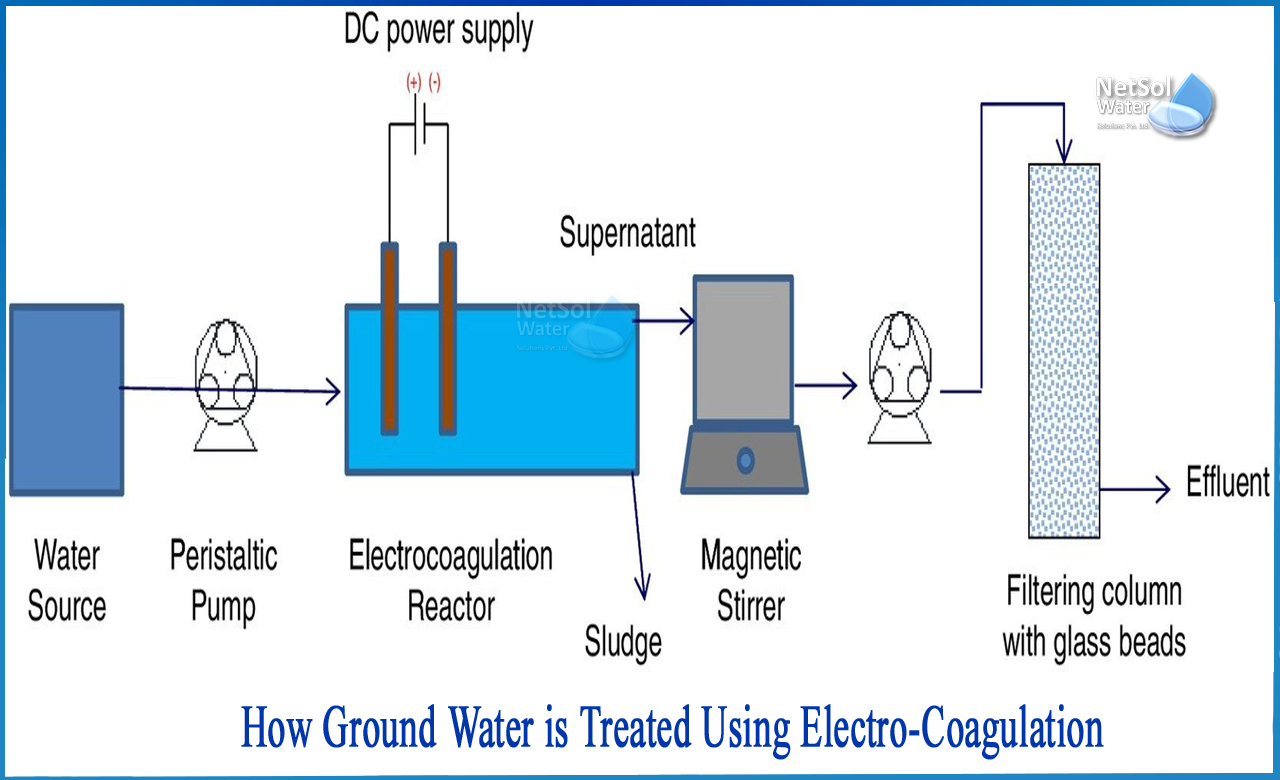How ground water is treated using electro-coagulation?
Since the groundwater source is underground, it is somewhat safe from pollution, but it is still vulnerable. At the factory, waste may not be discharged directly to the groundwater source, such as surface water currents and rivers. However, there are many other ways, waste can contaminate groundwater sources. Due to the porosity of the soil, dissolved liquid waste and solids can penetrate from the dry unsaturated layer to the underlying aquifer.
Other sources of GW contamination
Exudates from unlined landfills can enter groundwater sources along with battery acids, paints, household cleaners, and cocktails of other toxic substances.
A leak in a sewage treatment plant full of human waste or a storage tank for gasoline, oil or chemicals can also contaminate groundwater. Farms use nitrate-rich pesticide sprays and fertilizers to keep their produce healthy. However, heavy rainfall can allow these substances to penetrate the subterranean aquifer. This is why groundwater treatment is so important to both local governments and industrial companies.
Groundwater is an important source of water for drinking and process water applications. Therefore, when handled improperly, contaminants from these sources can cause human health problems and dramatically increase the maintenance of industrial systems.
Techniques involved
Various techniques have been used to treat groundwater before it is used, from biological to chemical and physical techniques. Each of these different methods has its strengths and weaknesses.
Below, we describe four benefits of using electro coagulation (EC) to support the groundwater treatment process for purifying contaminated groundwater!
1: Can treat a wide variety of pollutants
Groundwater is susceptible to pollution from a variety of pollutants due to the porosity of the soil. Due to the wide range of sources, different types of materials and elements can be stressful. Some pollutants come from natural resources, but most of the more harmful pollutants come from the washout of man-made substances.
A large number of pollutants can make it difficult to dispose of contaminated groundwater. This contaminated groundwater can require a multi-step complex process to remove or reduce most of it. EC can reduce many different pollutants in a single system. However, this depends on the optimum pH adjustment of these impurities, the electrode material, and the required reaction time.
2: Low cost
Groundwater treatment can be very costly, depending on what needs to be treated and which treatment method is used. Each process, from test run to operation and maintenance, has its own costs. Electro-coagulation is one of the lowest cost treatments in terms of its ability to remove contaminants. The system is very simple and has few moving parts. Electrodes are usually metals that are available at a reasonable cost. Acidity regulators are inexpensive and may not need to be used depending on the initial pH of the groundwater. These systems use system automation to minimize operator involvement and provide ease of use.
3: Can Treat Dissolved Solids (TDS)
Many of the pollutants in groundwater are dissolved. These solids are so small that they can be difficult to remove, but using EC makes them much easier. It is not possible to reduce certain components of TDS, but it is possible to reduce the components of TDS such as hard minerals and heavy metals. Chemical coagulation requires multiple processes to achieve lower performance results.
4: Small sludge formation
The chemical coagulation process produces large amounts of dangerous solid sludge due to the addition of chemicals that trigger the coagulation process. This issue is not found in electro coagulation. The EC system requires little or no harmful chemical additives. The required additives are usually used exclusively for pH regulation and may only be needed in small amounts. In addition, sludge is harmless and can be used as a soil additive to organic fertilizers for agricultural applications. This advantage reduces the associated sludge disposal costs.
I wish the groundwater source was untouched and did not require treatment. However, this is usually not the case in India and regions around the world.
Groundwater treatment does not have to be a problem, and dedicated electro coagulation technology could be an optimized solution for groundwater treatment applications.
Netsol Water is Greater Noida-based leading water & wastewater treatment plant manufacturer. We are industry's most demanding company based on client review and work quality. We are known as best commercial RO plant manufacturers, industrial RO plant manufacturer, sewage treatment plant manufacturer, Water Softener Plant Manufacturers and effluent treatment plant manufacturers. Apart from this 24x7 customer support is our USP. Call on +91-9650608473, or write us at enquiry@netsolwater.com for any support, inquiry or product-purchase related query.



